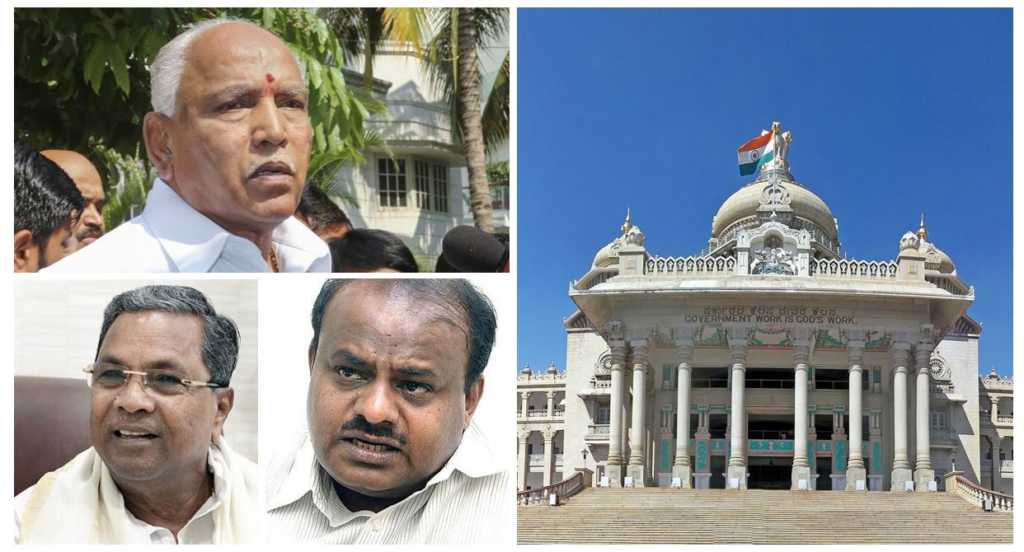With the political atmosphere heating up in Karnataka, there are a lot of speculations going on as to what could happen. The Supreme Court today directed that the floor test is to be conducted today in a bid to determine whether BS Yeddyurappa enjoys the confidence of the state legislative assembly.
The BJP has emerged as the single largest party in Karnataka with 104 lawmakers being returned to the legislative assembly by the party. The JD(S)-Congress coalition has a total number of 116 MLAs in the state consisting of 224 seats where 222 seats went to elections. It is expected that several Congress and JD (S) MLAs might give a conscience vote in favour of the BJP. It has come to light that some Congress MLAs belonging to the Lingyat community are unhappy over the plan to install JD (S) leader HD Kumaraswamy as Karnataka’s chief minister. It is also possible that certain JD (S) MLAs got miffed by the unholy alliance with the Congress and voted for the BJP.
With strong possibility of several Congress and JD (S) MLAs upset over the Congress and JD (S) attempting to circumvent the public mandate voting in favor of the BJP, the anti-defection law might kick in. The anti-defection law is contained under tenth schedule and has been put in place with the object of avoiding horse trading in MLAs.
According to the anti-defection law there are two ways in which an elected member can be disqualified:
In the first case, if an elected member voluntarily gives up the membership of his political party.
Secondly, if the member votes or abstains from voting against the party line during the legislative proceedings as decided by the party whip.
As an exception to these grounds, where one-thirds of the total elected members from a political party are involved, anti-defection law is inapplicable.
In the trust vote for Karnataka, anti-defection law will in all probability apply. If some of the JD (S) and Congress MLAs were to join the BJP before the trust vote, they will be disqualified with effect from the date on which they switched their loyalties. Similarly, if they vote in favor of the BJP it will help the BJP in achieving the 112-mark, but the MLAs will lose their membership to the legislature. Therefore, if 8 MLAs from either the Congress or JD (S) or Congress and JD (S) combined were to vote in BJP’s favor it will help the BJP in forming government but will lead to their disqualification. In case, there are abstentions from the opposition MLAs it will be a ground for disqualification of the abstaining members but the total membership and the clear majority mark will also go down. If fifteen of the MLAs abstain, the total strength of the house will fall to 207 and the BJP with a tally of 104 MLAs will be able to prove its majority.
Therefore, it is clear that there is no scope for horse trading ,as MLAs will risk their membership if they vote or abstain to vote against the whip issued by their parties. However, the anti-defection law does not prevent members from listening to their inner conscience. It is clear that electorate has voted for a BJP government, however, it fell a few seats short of the majority mark. It is now open for the MLAs within the Congress and JD (S) to understand how the two parties are disobeying the public mandate and vote accordingly.
